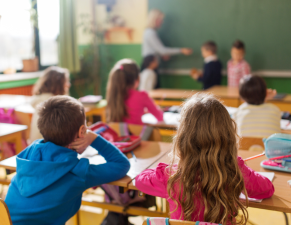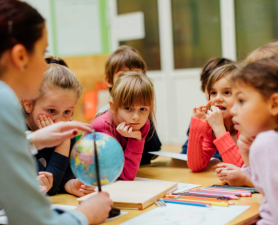The Importance of Cultivating Students' Life Skills
Enhancing Self-Reliance:
By cultivating students' life skills and practical knowledge, they can better handle various daily life tasks independently. For example, students can learn to cook, do laundry, and repair simple household appliances, thereby reducing the burden on parents or others and better taking care of themselves in life.
Cultivating Problem-Solving Abilities:
In the process of learning life skills and practical knowledge, students will encounter various problems and challenges. By cultivating problem-solving abilities, they can better cope with the troubles of daily life. For example, students learn how to repair bicycles, enabling them to solve problems independently when they malfunction, without relying on others.
Enhancing Social Skills:
Learning life skills and practical knowledge often requires students to collaborate or communicate with others. For instance, when learning cooking techniques, students can work with classmates to complete a recipe. Through this process, students not only improve their communication and collaboration skills but also gain a better understanding of the importance of teamwork.

Reasons for Cultivating Students' Life Skills
- Urgent need for practical skills
Workplace adaptability: Students often need to adapt to the work environment immediately after graduation, and practical skills such as programming, data analysis, and communication skills are more competitive in job hunting.
Changes in the job market: With the rapid development of technology, many industries have increased the demand for specific skills, and theoretical knowledge may not be directly converted into work ability.
- Disconnection between education and society
Course content is inconsistent with reality: Some higher education courses may be too theoretical and lack skill training related to actual work.
Fast skill update speed: Some technical skills are updated rapidly, and school education is difficult to keep up, resulting in a disconnect between what students learn in school and market demand.
- Personal development and interests
Personalized learning needs: Students want to choose learning content based on their personal interests and career plans, and pay more attention to practical skills rather than general theoretical knowledge.
Employment security: Mastering more practical skills can improve employment rate and job stability, and reduce employment pressure after graduation.
- Social cognition and expectations:
Society's demand for skilled talents has increased: the society generally believes that skilled talents can create more value, so students tend to learn more practical skills.
The change of educational goals: from the traditional academic orientation to an education model that focuses more on practice and application to cultivate talents that meet the needs of modern society.
- Reflection and adjustment of the education system
The need for educational reform: The education community has realized the importance of combining theory and practice for students' growth, and has begun to adjust the curriculum and increase practical links.


